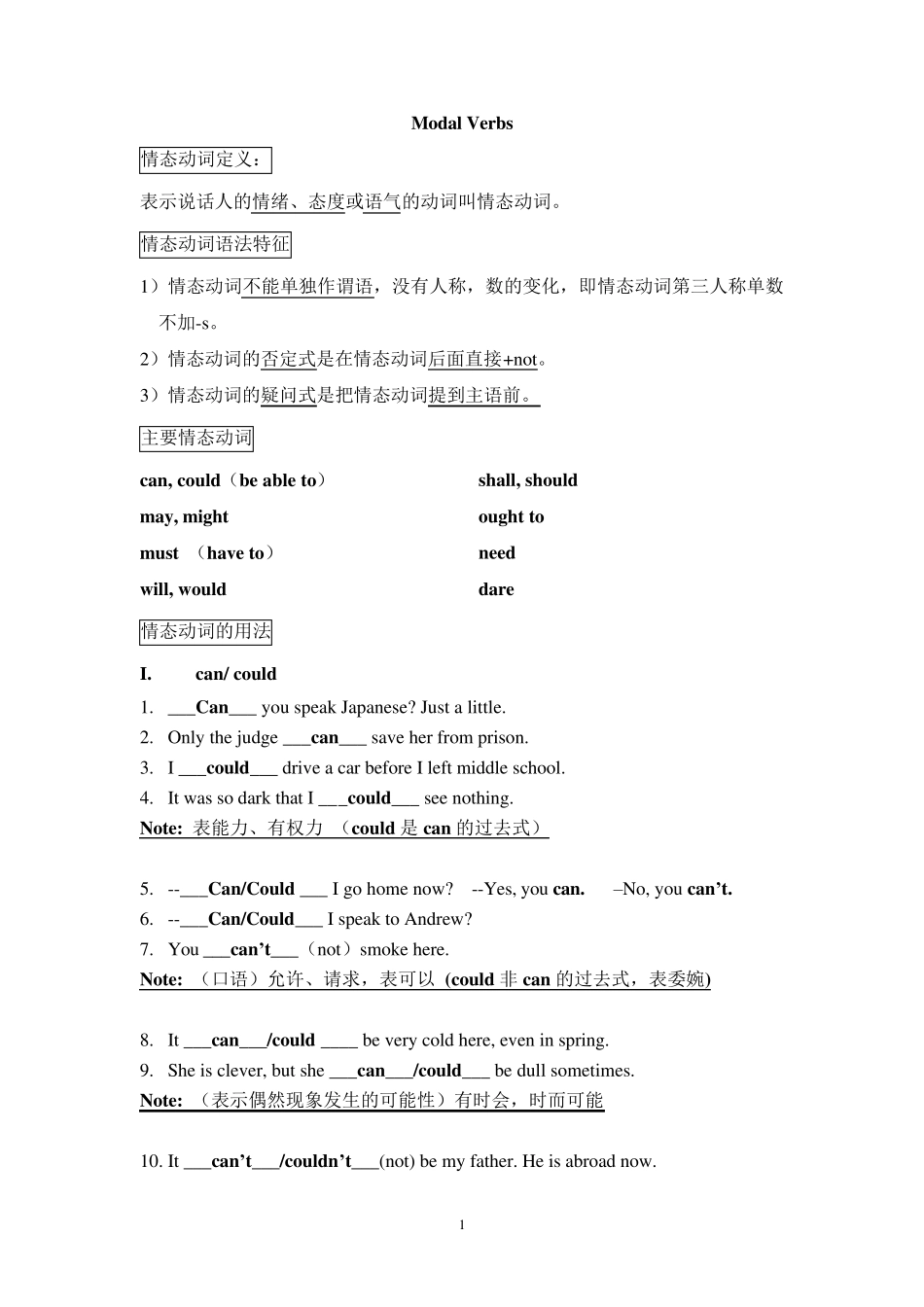1 Modal Verbs 情态动词定义: 表示说话人的情绪、态度或语气的动词叫情态动词。 情态动词语法特征 1)情态动词不能单独作谓语,没有人称,数的变化,即情态动词第三人称单数不加-s。 2)情态动词的否定式是在情态动词后面直接+not。 3)情态动词的疑问式是把情态动词提到主语前。 主要情态动词 can, could(be able to) may, might must (have to) will, would shall, should ought to need dare情态动词的用法 I. can/ could 1. ___Can___ you speak Japanese? Just a little. 2. Only the judge ___can___ save her from prison. 3. I ___could___ drive a car before I left middle school. 4. It was so dark that I ___could___ see nothing. Note: 表能力、有权力 (could 是 can 的过去式) 5. --___Can/Could ___ I go home now? --Yes, you can. –No, you can’t. 6. --___Can/Could___ I speak to Andrew? 7. You ___can’t___(not)smoke here. Note: (口语)允许、请求,表可以 (could 非 can 的过去式,表委婉) 8. It ___can___/could ____ be very cold here, even in spring. 9. She is clever, but she ___can___/could___ be dull sometimes. Note: (表示偶然现象发生的可能性)有时会,时而可能 10. It ___can’t___/couldn’t___(not) be my father. He is abroad now. 2 11. There is someone outside. Who ___can___ it be? 12. You __can’t/couldn’t have seen him__ (not see) him. He was not there. 13. She __ can’t/couldn’t have been ___(not be) more than six then. 14. He __ can’t/couldn’t have finished___ (not finish) the work last night without your help. Note: 表推测(否定、疑问句) 15. He __could have told__(tell) me the answer but he refused to. Note: 过去本能做而没有做 16. You _cannot/ can never_ ________ do the work too well. 17. You _cannot /can never__ be careful enough in your study. Note: cannot… too; can never... too; cannot enough 再… 都不为过;越… 越好 can & be able to 区别:1. can...


